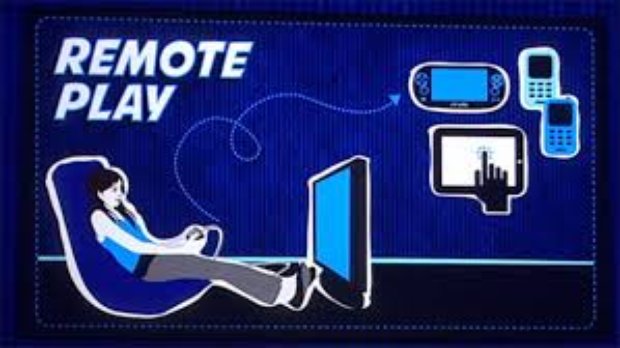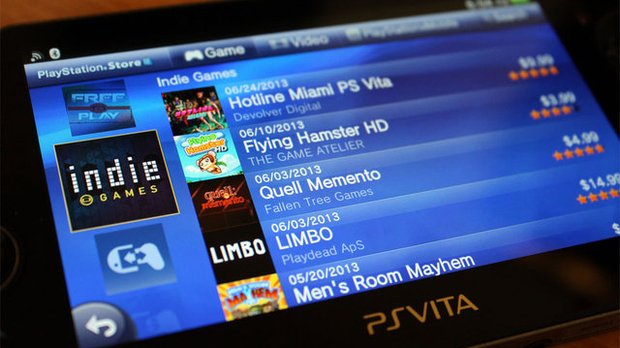The Vita's price cut couldn't have come at a better time
Sony's system might finally be poised for a comeback
Today's price drop announcement for the PS Vita comes near the end of a long road to recovery for Sony's powerful--and powerfully passed-over--handheld. Many journalists and industry vets have been clamoring for a Vita price cut for months, but Sony has waited until now to make the portable $50 cheaper. Some still think Sony waited too long, but I feel that now is just the right time for it.

When the system was first announced, the Vita’s $249/$299 price (Wi-Fi and 3G models, respectively) seemed fair, but it was clear early on that consumers weren’t hot on the system. Sales were sluggish around the world, with 4.3 million systems sold from December 2011 to March 2013. In Sony’s most recent sales quarter, fewer than 600,000 Vitas were sold worldwide, and it’s exceptionally rare to see a Vita game appear in the top 10 sales charts. While Sony of Japan cut the price for Vita in February, the US and EU branches kept the price unchanged. From the outside it seemed Sony was ready to give up on the handheld.
The good news is that Sony hasn’t been idle--in fact, it appears as if Sony’s strategy has been to first get its other problems dealt with before pulling the trigger on today’s price drop.
First, to that lack of big games issue. Last fall, Sony paid big money for exclusive Call of Duty and Assassin’s Creed games. You can argue about the quality of those games (well, Call of Duty was junk no matter who you ask), but it’s a fact that the expensive third-party exclusives didn’t sell all that well during the holidays. In the New Year, sales slowed even more as releases dried up, and retail titles that were exclusive to the system became increasingly rare.

This year, the fix is in. PlayStation Plus expanded to include Vita, giving players access to numerous free Vita titles using the same subscription they already had to PS+ on PS3. Major PS3 releases like Sly Cooper: Thieves in Time and Jak & Daxter HD came to Vita with cross-buy, and the Vita is being positioned as a second screen for a host of upcoming PS4 games, or even for remote play. These are all things we previously mapped out in this prescient editorial, and today was when Sony made those intentions particularly clear. We didn’t get the rumored PS4/Vita sales bundle (yet, anyway), but the two systems were continually working together during the GamesCom press conference. The last game played on stage was Assassin’s Creed 4, and part of the demo was controlled remotely with a Vita.
Beyond the AAA titles, the GamesCom stage saw Sony further explaining its commitment to indie games, which have enriched the Vita significantly. Purchasing most indie games on the PS3 or PS4 will unlock a free copy for the Vita: when PS3 owners bought an indie title like Guacamelee, Thomas Was Alone, or Retro City Rampage on PS3, those console gamers ended up with a bunch of Vita games without intending it. May as well get the handheld anyway to play those free games on the go, huh?

And the price drop is what completes that line of thinking for consumers. Imagine this: You already own all this content for the Vita via PSN, you intend to get a PS4, and just as you’re thinking of buying the Vita to go with it, BOOM, it’s $50 cheaper.
Weekly digests, tales from the communities you love, and more
One of the only flaws in Sony’s plan is that a new Vita needs extra free space to download the new owner's instant collection of games, but Sony is starting to address that as well. The system’s proprietary memory cards were once exorbitantly priced. Today they’ve been reduced by 20% across the board. It still doesn’t match the cost of most SD cards of similar size, but the change makes it easier for new owners to download all the free games they’ve amassed.

When Sony of Japan slashed the Vita’s price back in February, many were confused when the US and EU divisions didn’t do the same. However, the company’s strategy became clear today. Instead of lowering the price when there were almost no major titles to benefit from the discount, Sony spent the last few months making Vita as great a value proposition as it could, and then cut the price to capitalize on the excitement. This was the smartest way the company could've slashed the price, so this might finally sell the Vita to the gaming masses. And if this strategy doesn't revive the handheld's fortunes, we’re not sure anything will.
You know that kid at parties who talks too much? Drink in hand, way too enthusiastic, ponderously well-educated in topics no one in their right mind should know about? Loud? Well, that kid’s occasionally us. GR Editorials is a semi-regular feature where we share our informed insights on the news at hand. Sharp, funny, and finger-on-the-pulse, it’s the information you need to know even when you don’t know you need it.
Henry Gilbert is a former GamesRadar+ Editor, having spent seven years at the site helping to navigate our readers through the PS3 and Xbox 360 generation. Henry is now following another passion of his besides video games, working as the producer and podcast cohost of the popular Talking Simpsons and What a Cartoon podcasts.



